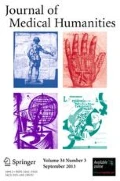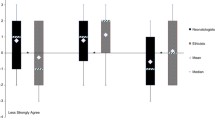Abstract
It has recently been suggested that doctors have a duty to act in their patient's best interest and that this duty demands that life-sustaining treatment—including food and fluids—should sometimes be withheld or withdrawn and the patient allowed to die. In this article, the author explores the scope of the ‘best interests principle’ in the context of treatment decisions for seriously handicapped newborn infants. She argues that those who hold that it is permissible to starve or dehydrate an infant to death are mistaken to think that this course of action is in the infant's best interests. While it may be true that there are times whendeath is, everything considered, in an infant's best interests, a slow and distressingmethod of bringing death about is not. Since death by dehydration and starvation is not benign, the withholding of food and fluids is generally not in an infant's best interests. The author concludes by suggesting thatwhenever the withdrawal or non-employment of life-sustaining means imposes a heavy burden on the infant, the ‘best interests principle’ would demand that the infant be killed rather than allowed to die.
Similar content being viewed by others
Reference notes
President's Commission for the Study of Ethical Problems in Medicine and Behavioral Research:Deciding to Forego Life-Sustaining Treatment, Washington, D.C.: Government Printing Office, 1983, pp. 126–136 and 197–228.
World Medical Assembly. Statement on terminal illness and boxing: 35th Medical Assembly, Venice, Italy, October 1983,Medical Journal of Australia 1984, Vol. 140, p. 431.
For the final rule seeFederal Register, 45 CFR Part 1340, April 15, 1985, pp. 14678–901; for a discussion and critique of earlier versions of the rule see Peter Singer and Helga Kuhse: “The Future of Baby Doe” inNew York Reviews of Books, Vol. XXXI, No. 3, March 1, 1984, pp. 17–23.
In re Infant Doe, No. GU 8204-00 [Cir. Ct. Monroe County, Ind., April 12, 1982], writ of mandamus dismissed sub nom.State ex rel. Infant Doe v. Baker, No. 482 S140 [Indiana Supreme Ct. May 27, 1982]
See Helga Kuhse and Peter Singer:Should the Baby Live? Oxford, New York, Melbourne: Oxford University Press, 1985, Chapter 1
Report pp. 218–9
Report, p. 90
American Academy of Pediatrics v. Heckler, No. 83-0774, U.S. District Court, D.C., April 24, 1983.
Report pp. 218–9; see, however, also Michael Tooley:Abortion and Infanticide, Oxford: Clarendon Press, 1983; Christina Hoff Sommers: “Tooley's Immodest Proposal,”Hastings Center Report Vol. 15, June 1985 pp. 39–42; and Helga Kuhse: “Interests”,Journal of Medical Ethics, Vol. 11, September 1985. pp. 146–149.
Aubrey Milunsky:Know Your Genes, Penguin, 1980, p. 172
see ref. [8]
James Rachels: “Euthanasia, Killing, and Letting Die”, in [ed.] John Ladd:Ethical Issues Relating to Life and Death, New York, Oxford: Oxford University Press, 1979, p. 159.
Report, pp. 65–77.
Author information
Authors and Affiliations
Rights and permissions
About this article
Cite this article
Kuhse, H. Death by non-feeding: Not in the baby's best interests. J Med Hum 7, 79–90 (1986). https://doi.org/10.1007/BF01117900
Issue Date:
DOI: https://doi.org/10.1007/BF01117900



